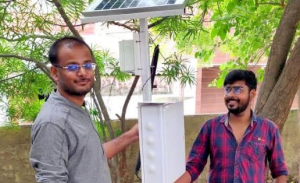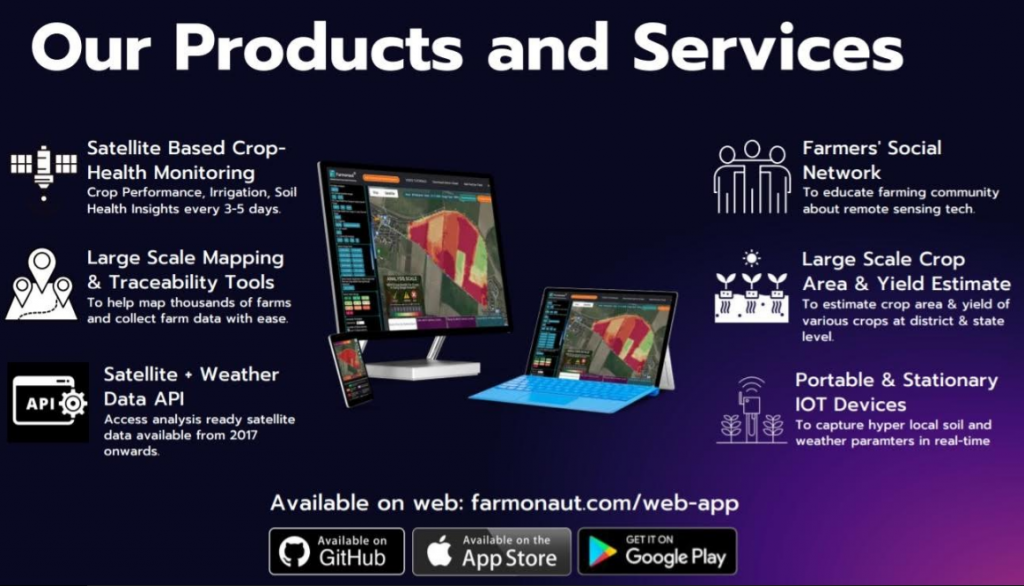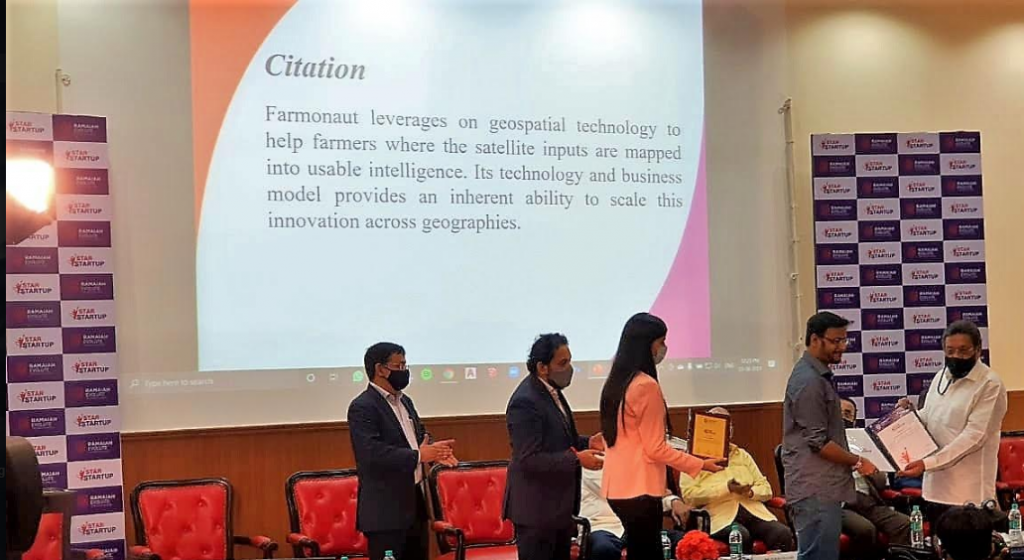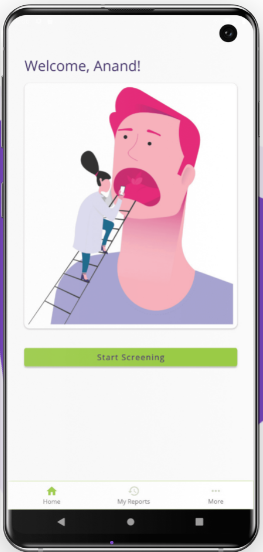1. What motivated you to start this service?
We all are somehow connected to farming backgrounds either directly or indirectly. We see the struggles farmers face in day-to-day life and how many losses they have to bear in absence of any remedy. We conducted our research on existing solutions which can make farming sustainable and reduce losses. During our study, we found so many ways and existing players but still, many missing links need to be addressed. From there the initial seed of Farmonaut was sown.
2. When did you actually begin?
The story is very interesting.
Mr. Ankur while doing his Masters’ degree in Barcelona, came across a similar project, and that straight away clicked in his mind why not Indian farmers should be benefitted. So he started ideating on his vision and shared this with me when I was in Bangalore at that time. So the initial path was laid in 2018 and a basic mobile app was developed with initial features such as – Farmers’ social network, Government approved database for fertilizers and pest remedies and soon satellite monitoring was also introduced to help the root level farmer directly, not only in India but anyone across the globe.
3. How were your initial days of convincing people to opt for your services?
Frankly speaking, the initial days were very tough because this was a very new technology from an Indian agriculture perspective but we took the mantle. As we all know Indian farmers are still getting used to the latest technologies and many of them are marginal farmers. So, our first goal was to make it as much cost-effective as much possible so that even small-scale farmers can easily afford and get the benefits out of it.
4. How did you progress?
Over time, we have seen many ups and downs and sometimes big setbacks too but all these helped us in becoming what we are today. Our approach to the market has also diversified and today we have multiple offerings and business models to cater to any client and their requirements. As mentioned earlier, we used to offer only social networks, government databases, and satellite monitoring. Today we not only offer satellite monitoring but also Farming IoT, API solutions, White-label, Custom support, Traceability, and so much more.
Today we have successfully onboarded 20 thousand plus direct customers onto our platforms and more than 30 thousand customers through third-party partners. We today are available across all platforms – Android, iOS, and Web. This gives us the upper edge in the market.
5. Which of these services are rocking the market?
API is the biggest contributor to our business so far and we know why is it so. Many existing companies are helping farmers on the ground but they do not possess any technology, so they can simply use our API solutions and start helping their farmer community. This helps both of us, we are indirectly able to help farmers with whom we are not associated directly. IoT can also be a game-changer in the coming future because of its multiple use-cases. Satellite data in combination with IoT data will bring much better insight into a farm and reduce the chances of crops getting destroyed by a big margin.
6. What are your future plans to grow your business?
Our target audience is always the end-user (farmer) and we want to help as many farmers as possible to bring food security, better soil health, and the best quality crop. We are currently working with many individuals. Our current business model has many verticals and we want to ensure that we provide the maximum value proposition in all these verticals.
7. What height will it reach in the next 2-3 years?
We are very optimistic and we acknowledge all the insights we receive from any customer/client/partner. We want to grow our outreach by 20X in the coming 2 years.
8. Short intro about yourself and your background.
I am a graduate of Kanpur University and have worked in the education sector for 10 years and have been taking Farmonaut further with the experience gained in ed-tech.
9. Any Message for youth to come forward with innovations.
You must always be open to new ideas and be ready to think out of the box. Be open to constructive criticism and have the flexibility to pivot. Try focusing on making solutions, not products.







